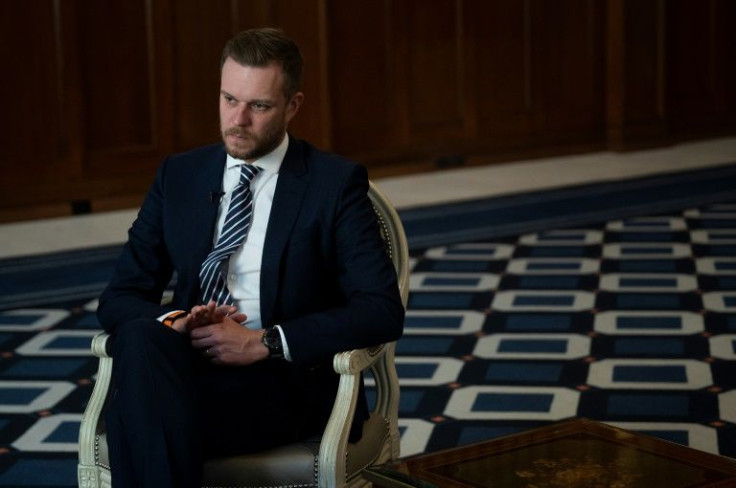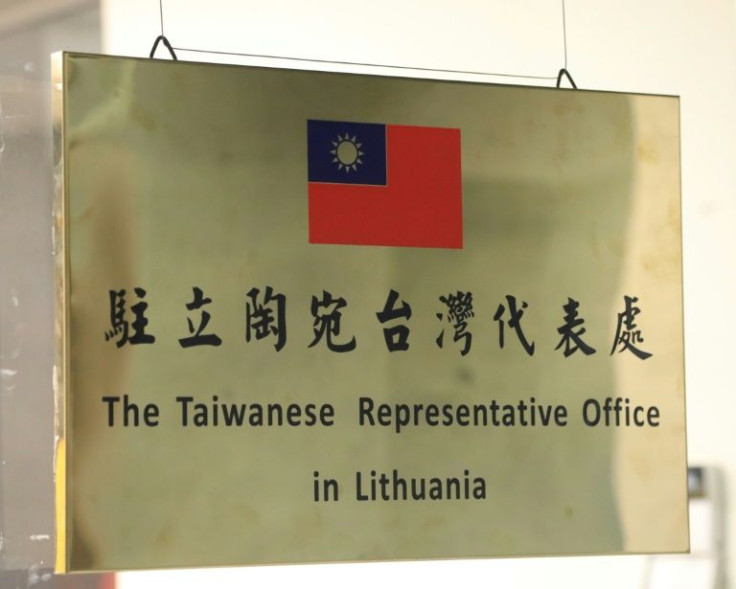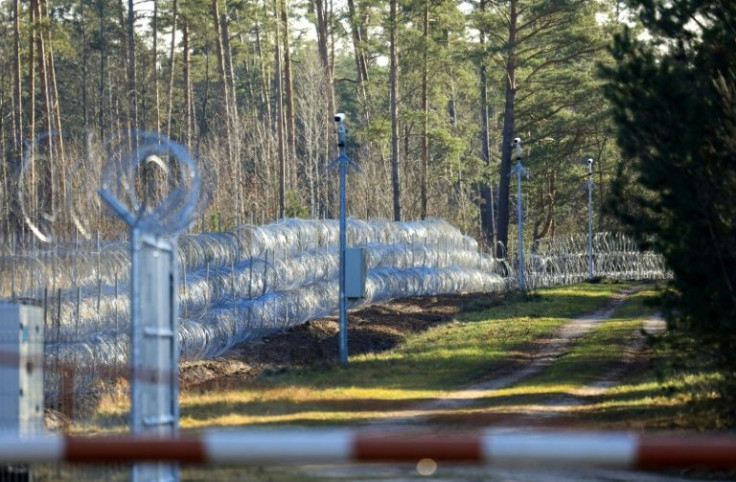Lithuania Shows World Way To Withstand China, FM Says
Lithuania is showing the world a way to resist China's growing pressure by diversifying supply chains and uniting with fellow democracies, the EU nation's foreign minister said Wednesday.
One of the smallest EU nations, Lithuania has been punching above its weight diplomatically by letting Taiwan open an office in its own name and, separately, welcoming the opposition from neighboring Belarus which says it won last year's election.
On a visit to Washington, Foreign Minister Gabrielius Landsbergis said he spoke to senior US officials on Lithuania's efforts to reduce reliance on China for supplies and called for longer-term efforts to help other nations facing pressure.
"I think that the biggest lesson out of Lithuania is that economic coercion does not necessarily mean that the country needs to step away from independent foreign policy decisions," Landsbergis told AFP.

"Probably you'll be threatened, you'll be shouted at in the headlines in Chinese media, but nonetheless, you can withstand that."
While authoritarian nations speak of the failure of democracy, "I have to say that the only weakness of democracies is not being able to help each other," he said.
Lithuania, like almost all countries, recognizes only China and not Taiwan, a self-governing democracy that Beijing considers a province awaiting reunification.
But going one step further even than the United States, the island's crucial backer, Lithuania allowed Taiwan to open an office in Vilnius in its own name, leading China to downgrade both diplomatic and trade ties with the Baltic state.

The retaliation reinforces the image that China's chief tool "is not diplomacy" but "coming from the position of power and coercing countries," Landsbergis said.
"Countries feel that there's this invisible sword of Damocles hanging above their heads" if they displease Beijing, he said.
Landsbergis said other nations were reaching out to Lithuania about its experience and they "100 percent wish to have more space to make independent decisions about their foreign policy."

Lithuania exports a modest 250 million euros ($280 million) per year to China but the foreign minister said the larger issue was Chinese-made parts in the supply chain, with the small nation making a concerted effort to switch to democratic partners.
While some Europeans have bemoaned the growing US focus on Asia, Landsbergis said that Lithuania wanted to be a "responsible NATO partner" and show an interest in the Pacific.
Despite the vast geographic and cultural distance, Landsbergis said that Lithuanians, formerly under Soviet communist rule, felt a "sense of kinship" with the Taiwanese.
The relationship is more immediate when it comes to Belarus, where strongman Alexander Lukashenko last year was declared the winner of a sixth term and quickly moved to suppress protests alleging fraud.
Lithuania -- which has welcomed opposition leader Svetlana Tikhanovskaya, who says she won the election -- called for a united Western stance to stop entirely Lukashenko's "weaponization" of migration.
Western officials say Belarus has tried to encourage thousands of migrants flown in from the Middle East to cross into the European Union.
In the past, Lukashenko would detain and release political prisoners in return for an easing of sanctions, Landsbergis said.
"That was a never-ending story. So we are seeing that he might want to create something like that with the migrants," he said.
He also voiced concern that Lukashenko was acting at the behest of his ally, Russian President Vladimir Putin, who has raised alarm bells through military movements near Ukraine.
"Lukashenko's regime is probably almost indistinguishable from Putin himself, but there is still a lingering flame of sovereignty," Landsbergis said.
"So there is a possibility that Putin would create enough fires for us not to understand where the next move will be, so that the next day we wake up to the reality that basically Belarus is under control of the Russian military."
© Copyright AFP {{Year}}. All rights reserved.





















